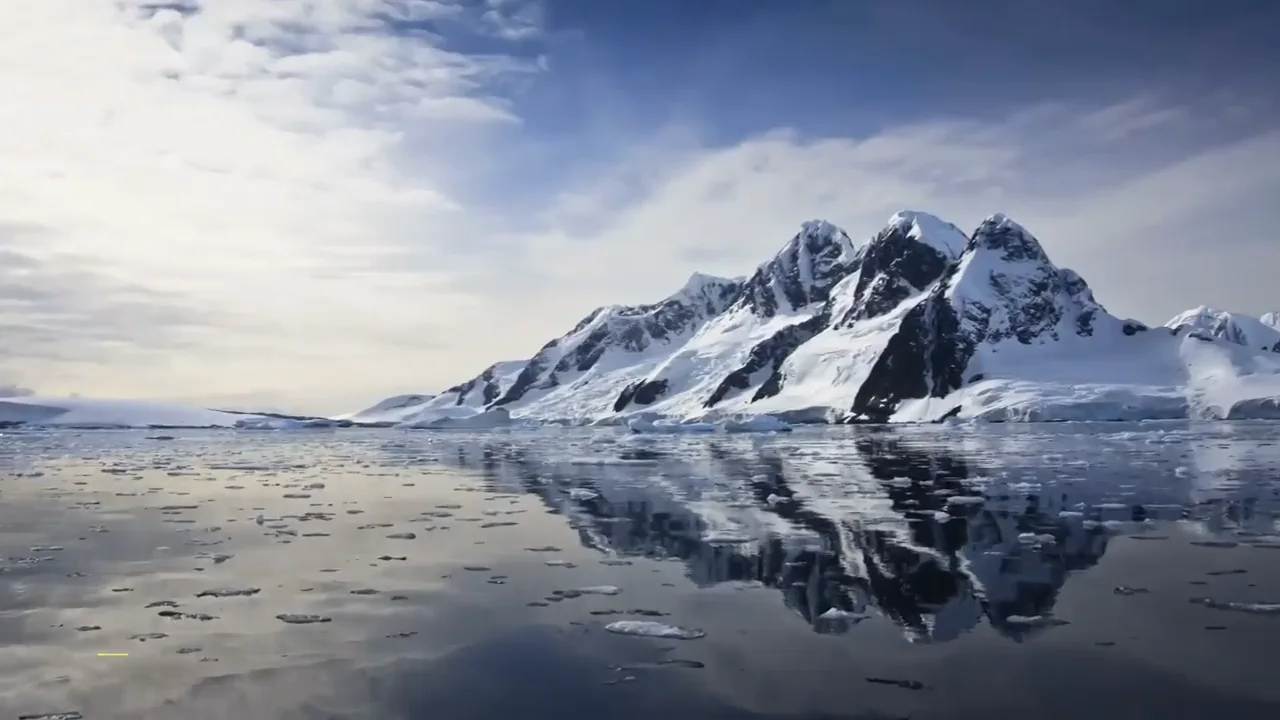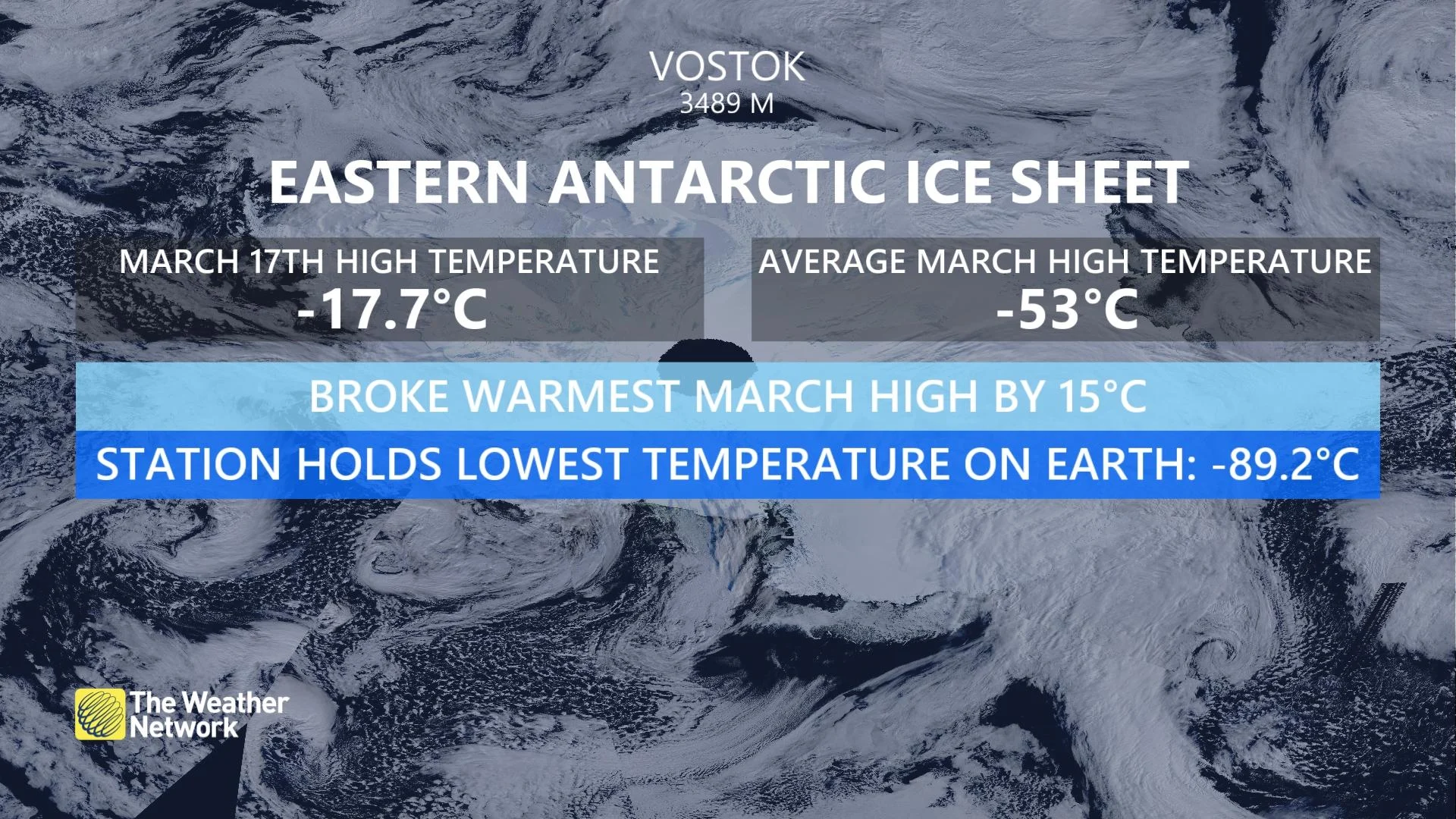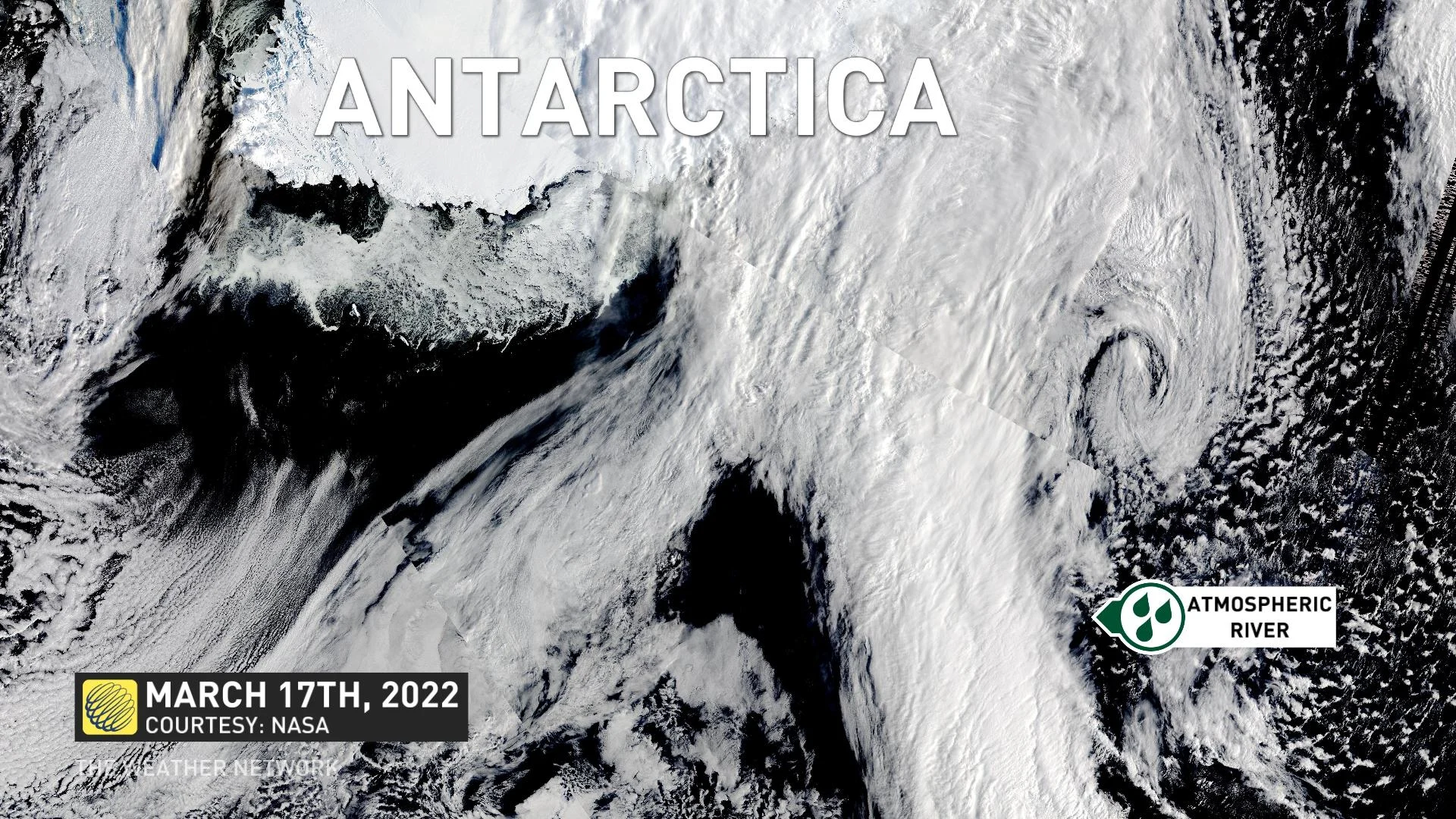
Coldest place in the world sees record-breaking heat wave
A strong low drove warmth well inland across the Antarctica ice sheet and the associated atmospheric river allowed more moisture to reach the continent, permitting temperatures to surge.
It's tough to imagine an unprecedented heat wave at -10°C to -20°C, but that's the recent reality across Antarctica.
It's not even close. The coldest place on earth is Antarctica, although temperatures soared to more than 30 degrees above normal on March 17.
To grasp what's normal for this part of the world, think of the coldest temperature ever recorded in Edmonton, Alberta. That's roughly -50°C.

We'll start at the Concordia research station, 3234 metres above sea level, where the mercury surged to -12.2°C. An average high in mid-March is more like -50°C. Consequently, this station saw a 36-degree temperature anomaly. Just for a second, imagine Toronto recorded a high of 40°C this past weekend. That's the kind of extreme anomaly we're looking at here.
The most famous Antarctic station of them all, Vostok, climbed to a balmy -17.7°C, eclipsing a monthly record by almost 15°C. This is also a sharp contrast to last winter, where the April-October period was the coldest on record -- increasingly rare in a warming world.

The Antarctica heat dome is even more extreme than British Columbia's unprecedented event in June 2021. B.C's heat dome saw temperatures reach 25 degrees above normal, where some stations broke all-time temperature records by nearly six degrees.
The ability for these records to be obliterated during the second half of March is unfathomable. The continent is quickly plunging into the cold season. This time of year, nearly 30 minutes of daylight are vanishing per day.

A strong low drove warmth well inland across the ice sheet, while the associated atmospheric river allowed more moisture to reach the continent, permitting temperatures to surge. The normally dry, arctic climate had more moisture to work with over the ice sheet, allowing heat to radiate towards the surface.
